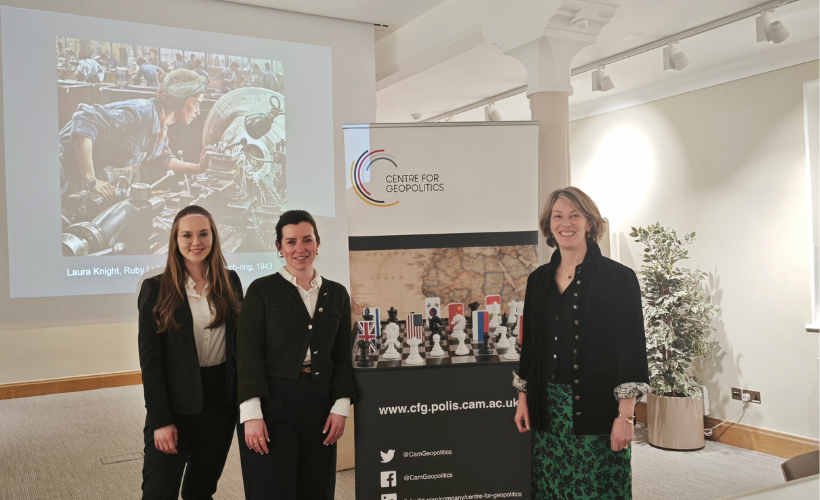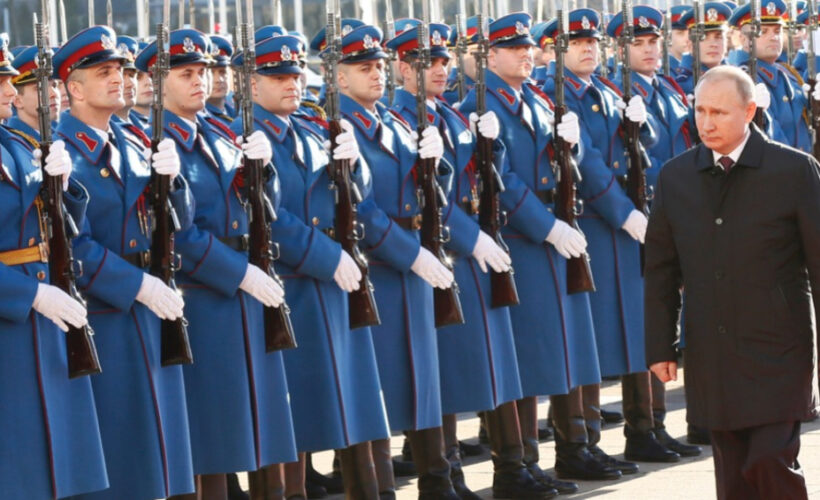On the 20th October, the Centre for Geopolitics, in collaboration with the university’s Department of Politics and International Studies (POLIS) assembled an expert panel to discuss the question of whether we are at the end of the long twentieth century. Professor Jason Sharman (King’s College and Departmental Head at POLIS) chaired the event, which was also attended by Professor Helen Thompson (Clare), Dr Kun-Chin Lin (Gonville and Caius and the Centre’s Acting Director) and Dr Ayse Zarakol (Emmanuel).
Whilst each panellist approached the question from a different angle, all agreed that the question at hand required problematisation. Dr Zarakol kicked off the event by discussing the temporal dimensions of the twentieth century: when did it start? When did it end? Or perhaps when will it end? And what will we leave behind when it ends, if it has not indeed already ended? Dr Zarakol pushed back strongly against the consensus view that the twentieth century can straightforwardly be called an “American century”, because to do so would require one to turn a blind eye to the deep impact the Soviet Union had on the international politics of the period. What we might say defines the twentieth century, rather, are intrenched beliefs in modernity- the belief in states, in their agency, and in progress. It is this that we are arguably leaving behind in the twenty-first century.
Professor Thompson similarly warned against conceiving the twentieth century as simply America’s. It is easy to read US dominance backwards, but that would be to elide its inability to lead on the international stage in the interwar years (as much a part of the dysfunctional relationship between its domestic politics and foreign policy as its relative political clout), and the 1970s, when it was humiliated in Vietnam, and when oil dependency sucked it into the geopolitics of the Middle East.
With that said, both Dr Zarakol and Professor Thompson were also sceptical of the suggestion that the twenty-first century will be a “Chinese century”. China’s activities are far from inconsequential, but they are taking place in a context in which US energy and financial power has increased; it is less energy dependent than China, and its federal reserve has had an augmented role as an international lender of last resort since 2008. China’s power may be on the rise, but the next twenty years will continue to be determined by the foreign policy decisions of the United States.
Dr Lin offered a different line of inquiry and looked at the question instead from the perspective of medium-size powers. What will be the fate of states outside of what Niall Ferguson has labelled “Chimerica”? Whilst states previously have “hedged” their relations with China and the US in order to placate both, it no longer seems possible to do this in the current geopolitical climate. Middling powers will increasingly have to make stark choices when it comes to their international alliances, as the UK’s decision to remove Huawei from its 5G network demonstrates.
The Q&A elicited thoughtful questions from POLIS alumni and friends of the Centre on a range of topics, from the place of the climate crisis on international relations, the difficult choices facing the European Union, and the prospects of post-Brexit Britain.
EVENT VIDEO
Our thanks go to Professor Sharman, Professor Thompson, Dr Lin and Dr Zarakol for a thought-provoking discussion, and to POLIS and the Cambridge University Development and Alumni Relations Office for their kind help in putting this event on.







